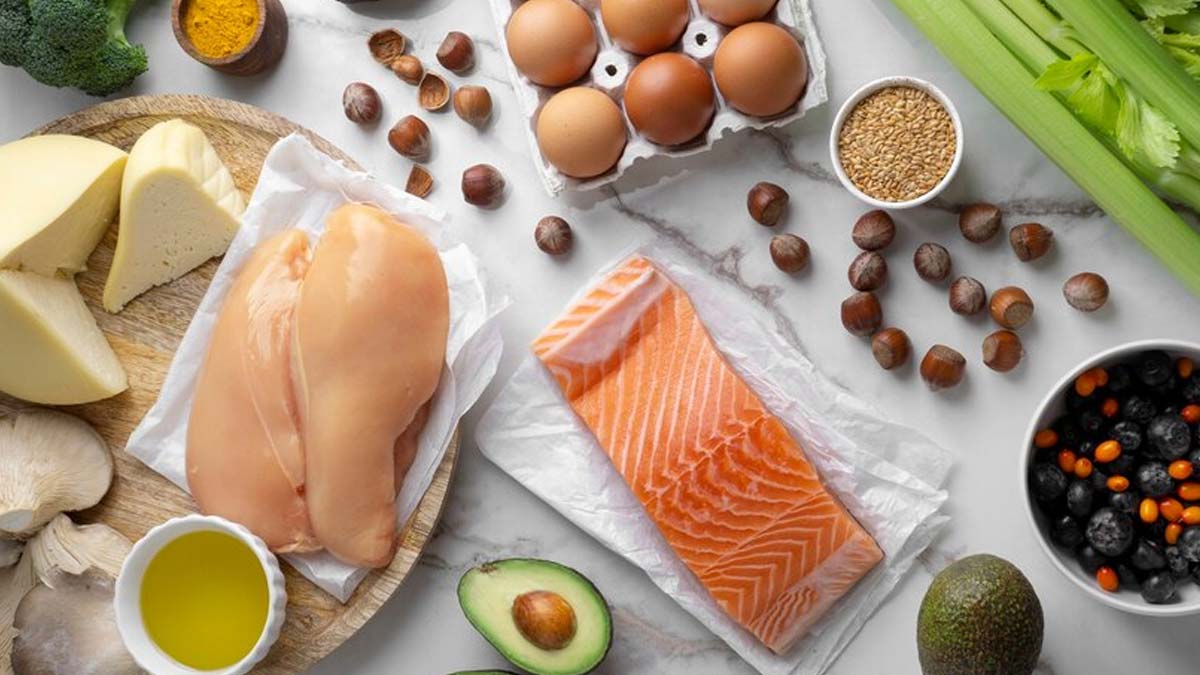
When it comes to managing kidney health and blood pressure, diet plays an indispensable role. One key dietary component that stands out for its benefits is lean protein. But what makes lean proteins so beneficial for individuals struggling with kidney issues and hypertension?
Table of Content:-
Lean proteins are nutrient-dense and low in fat, making them an ideal choice for those needing to balance their protein intake without overburdening their kidneys or raising their blood pressure. In this article, we explore the reasons behind the recommendation of lean proteins for kidney and blood pressure patients and provide practical tips for incorporating them into your diet.
To understand this, OnlyMyHealth team interacted with Dr Prakash Chandra Shetty, a Consultant Urologist at Dr LH Hiranandani Hospital in Powai, Mumbai.
What Are Lean Proteins?
Lean proteins are essentially proteins with lower fat content. They usually include:
- Chicken and Turkey (without the skin)
- Fish
- Eggs
- Beans and Lentils
- Low-fat Dairy Products (like yogurt and milk)
- Tofu
Why Lean Proteins Are Good for Kidney Patients

1. Less Work for the Kidneys
"Your kidneys remove wastes from the blood. Diets high in proteins may strain the kidneys because they produce more wastes which must also get filtered by the kidneys. Lean proteins produce less waste, hence making life easier for the kidneys," says Dr Prakash Chandra Shetty.
2. Low in Phosphorus
Dr Shetty explains, "Lean proteins also control phosphorus levels in the body. Some high-fat proteins, such as red meat, contain large quantities of phosphorus which may accumulate if kidney function declines.” According to him, lean proteins tend to have lower amounts of phosphorus, which is kinder to your kidneys.
3. Maintains Muscle Mass
Individuals suffering from kidney insufficiency must still consume a sufficient amount of protein as it helps in maintaining muscles, repairing damaged tissues, and building new tissues. “This is where lean proteins come in handy as they provide sufficient protein without overloading the kidneys due to less fat content," adds Dr Shetty.
Why Lean Proteins Are Good for Blood Pressure Patients

1. Low in Saturated Fats
"Saturated fats result in increased cholesterol levels, which are found in high quantities in fatty meats and whole milk products. These fats are scarce in lean proteins, thus they help regulate blood pressure," Dr Shetty points out.
2. Rich in Nutrients
Dr Shetty mentions, "Various types of nutrients such as vitamins and minerals, including omega-3 fatty acids (especially in fish), can be packed into many forms of lean protein. These fats mainly support heart health generally and assist in managing blood pressure."
3. Helps Maintain a Healthy Weight
"Being overweight tends to cause increased blood pressure. Lean proteins help in maintaining the ideal weight because they fill your stomach early with low-calorie food, helping you manage the portion size you eat," says Dr Shetty.
Also read: When Should You Seriously Worry About Your Blood Pressure?
Tips for Including Lean Proteins in Your Diet
- Choose Chicken or Turkey: Opt for skinless poultry, which is much lower in fat.
- Incorporate Fish: Fish like salmon, mackerel, and trout are the best sources of lean protein and good fats.
- Add Plant-Based Proteins: Beans, lentils, and other legumes have little fat content, making them a good substitute for meat.
- Select Low-Fat Dairy: Choose low-fat varieties or nonfat alternatives when selecting yogurt, milk, and cheese.
- Cook Smart: Instead of frying proteins with additional fat, consider grilling or steaming them to avoid extra fat.
Lean proteins form a crucial part of diets for patients with kidney disease and high blood pressure. They contribute towards lessening the burden on kidneys by controlling phosphorus levels and maintaining muscle mass. Additionally, they help regulate cholesterol and blood pressure while supporting heart health. By making smart protein choices, you can significantly improve your overall well-being. Remember, lean proteins are the best choice for your heart and kidneys.
Also watch this video
How we keep this article up to date:
We work with experts and keep a close eye on the latest in health and wellness. Whenever there is a new research or helpful information, we update our articles with accurate and useful advice.
Current Version
